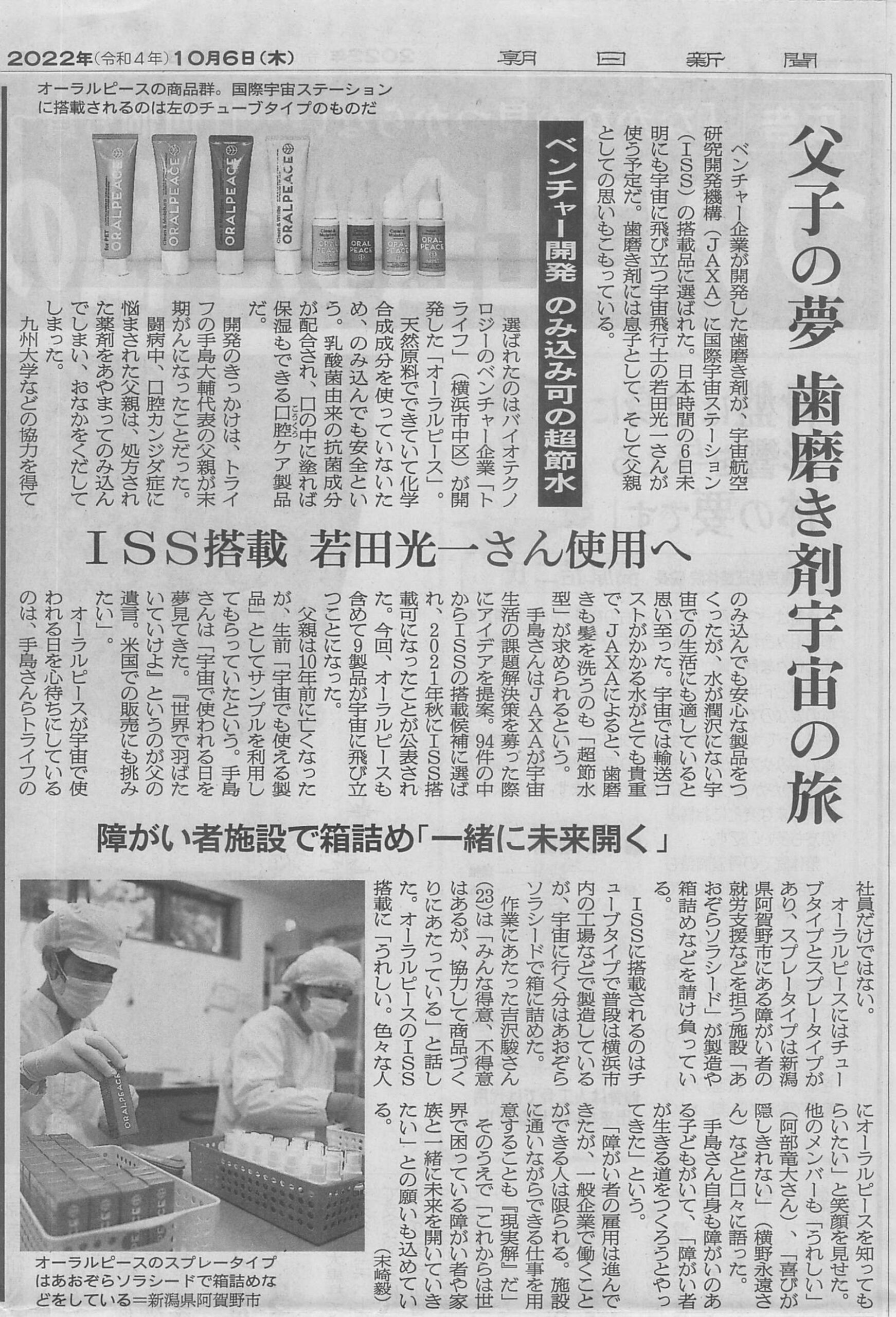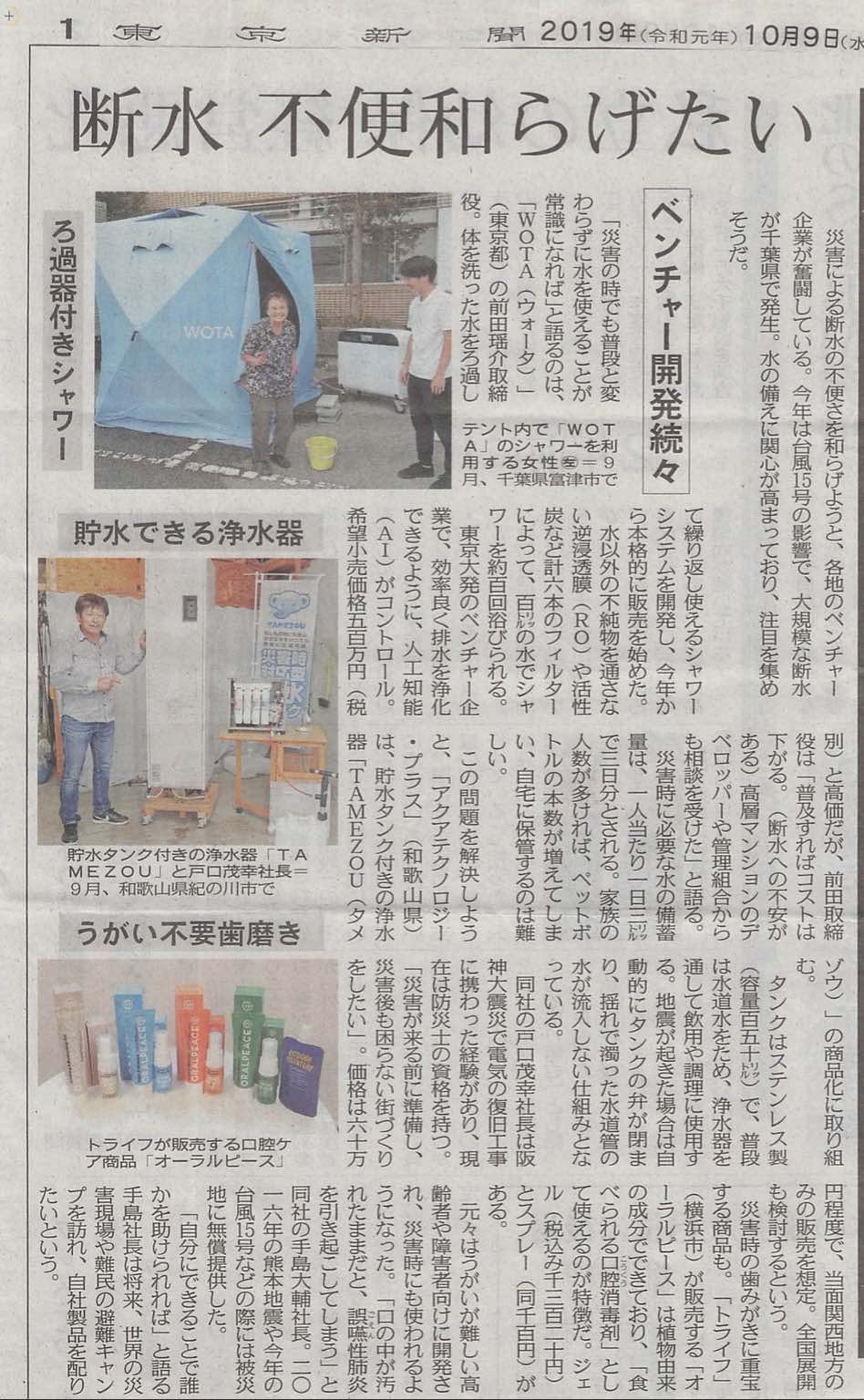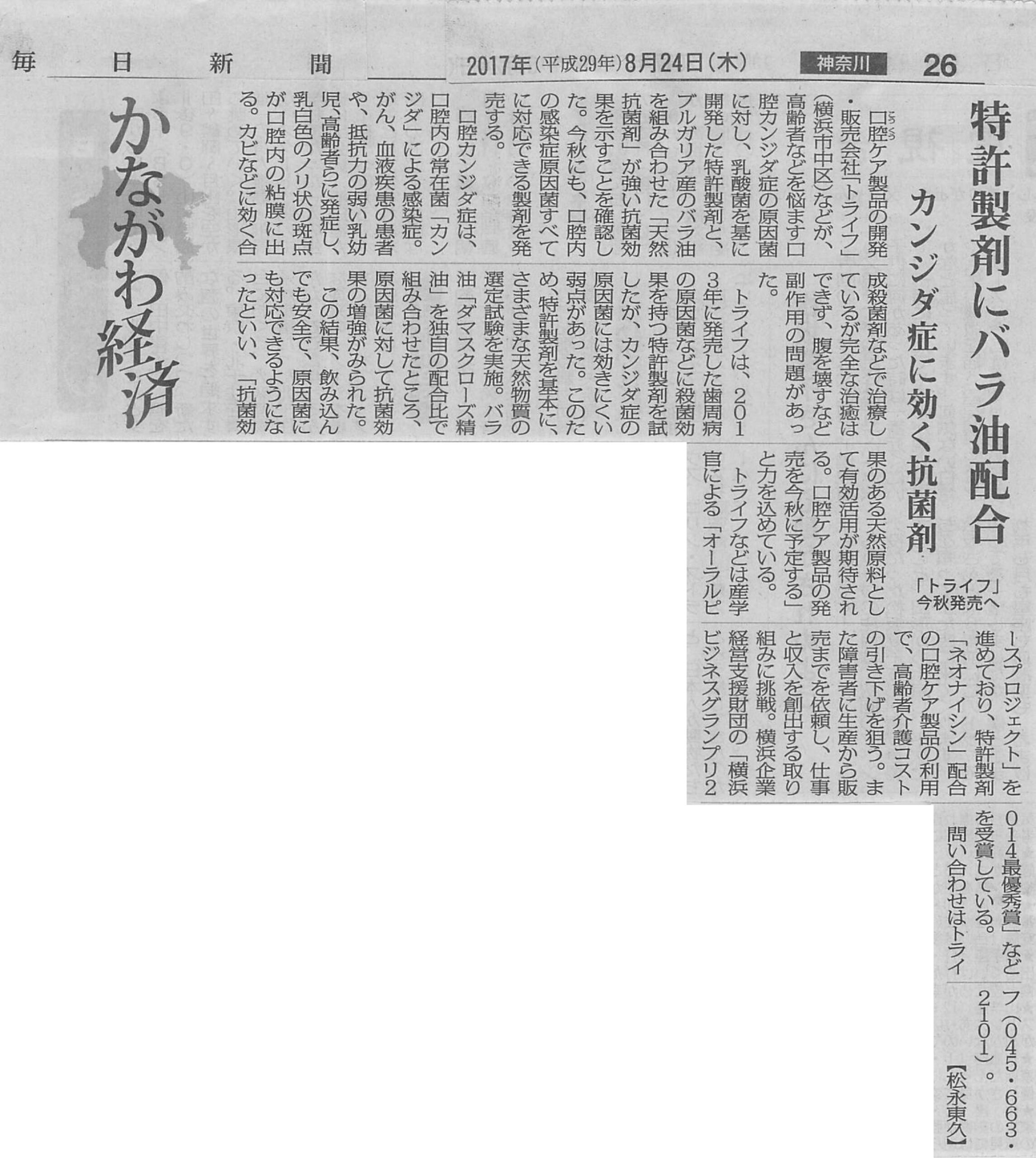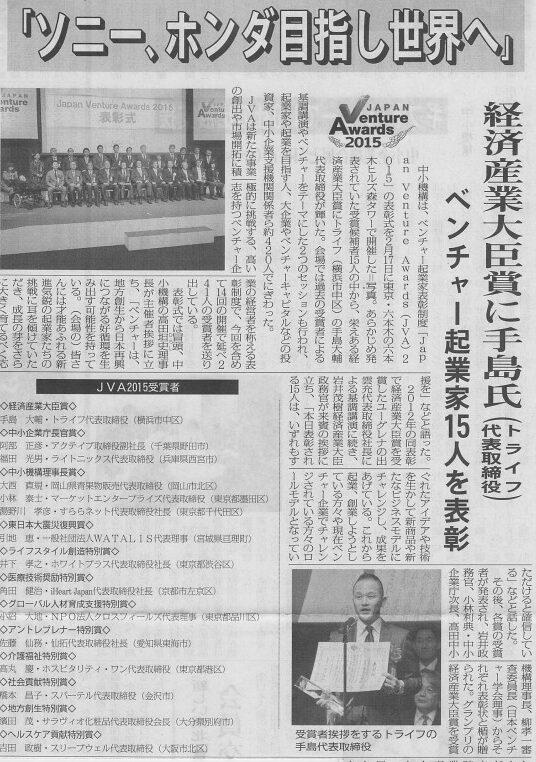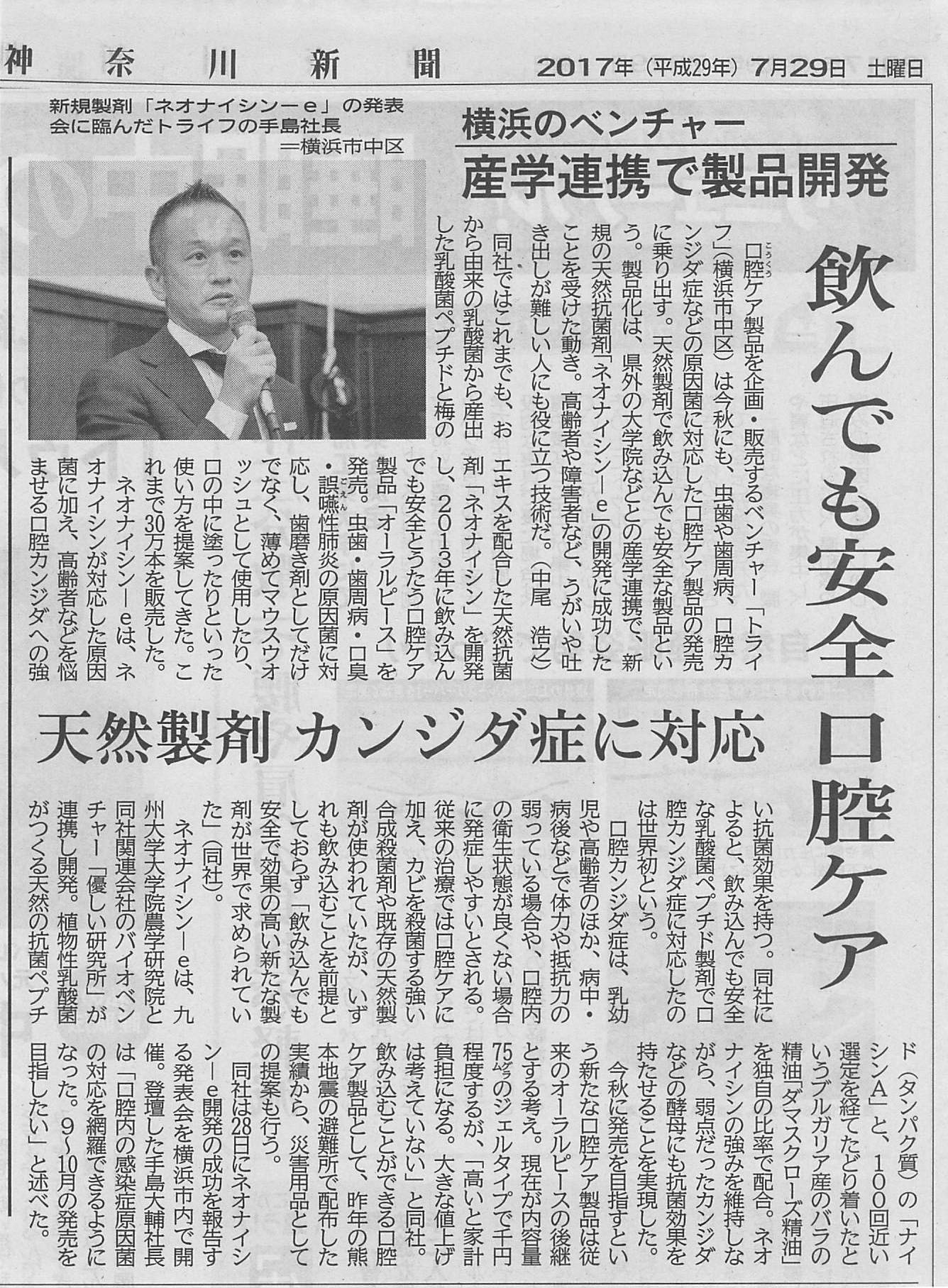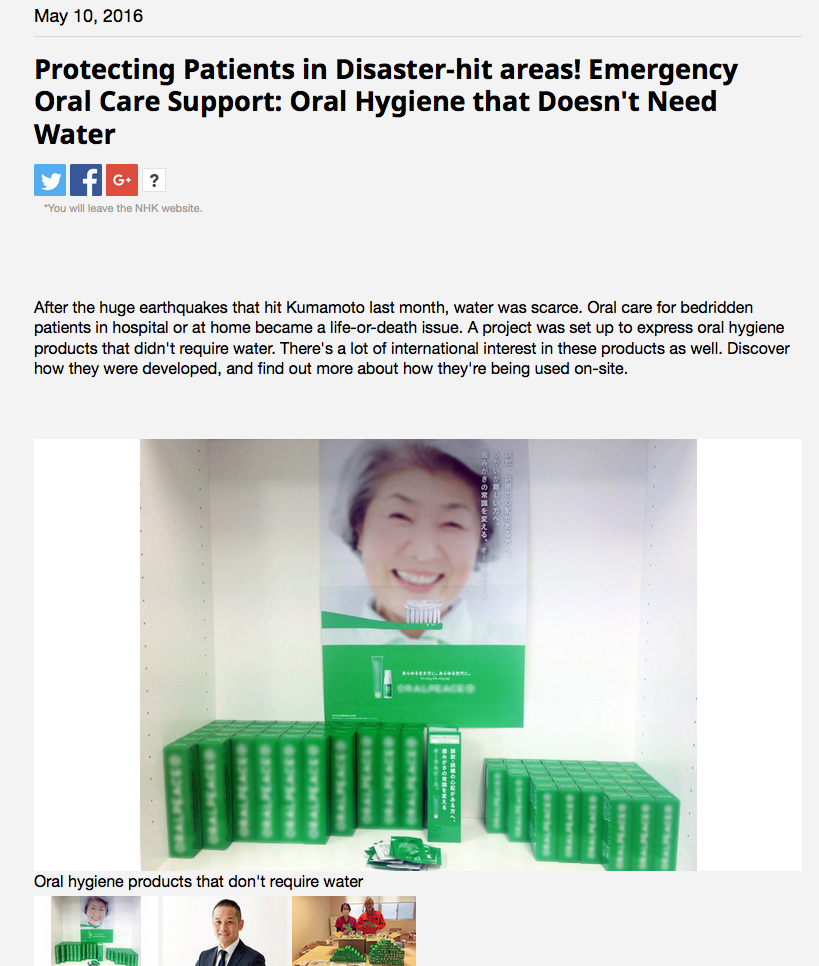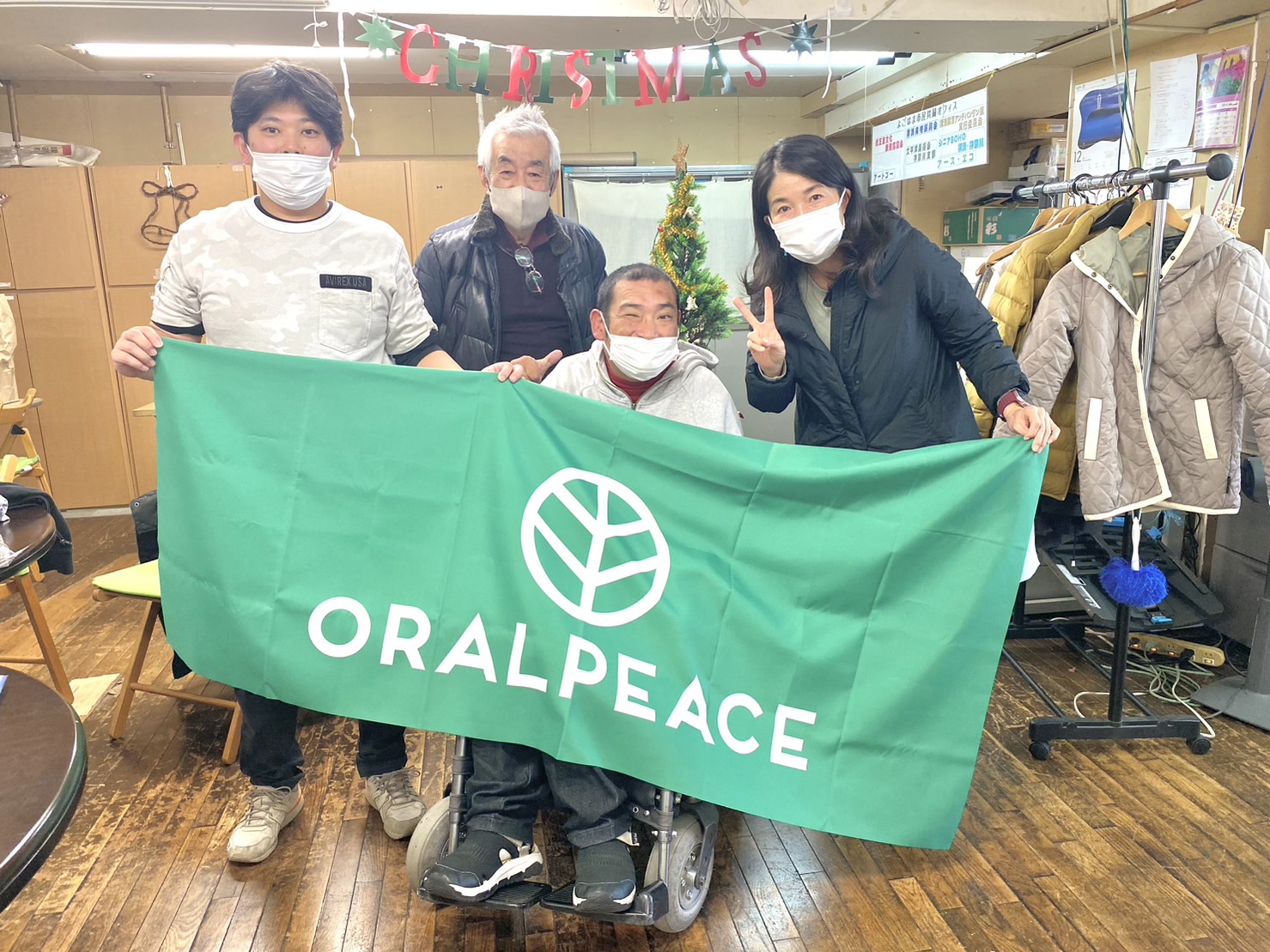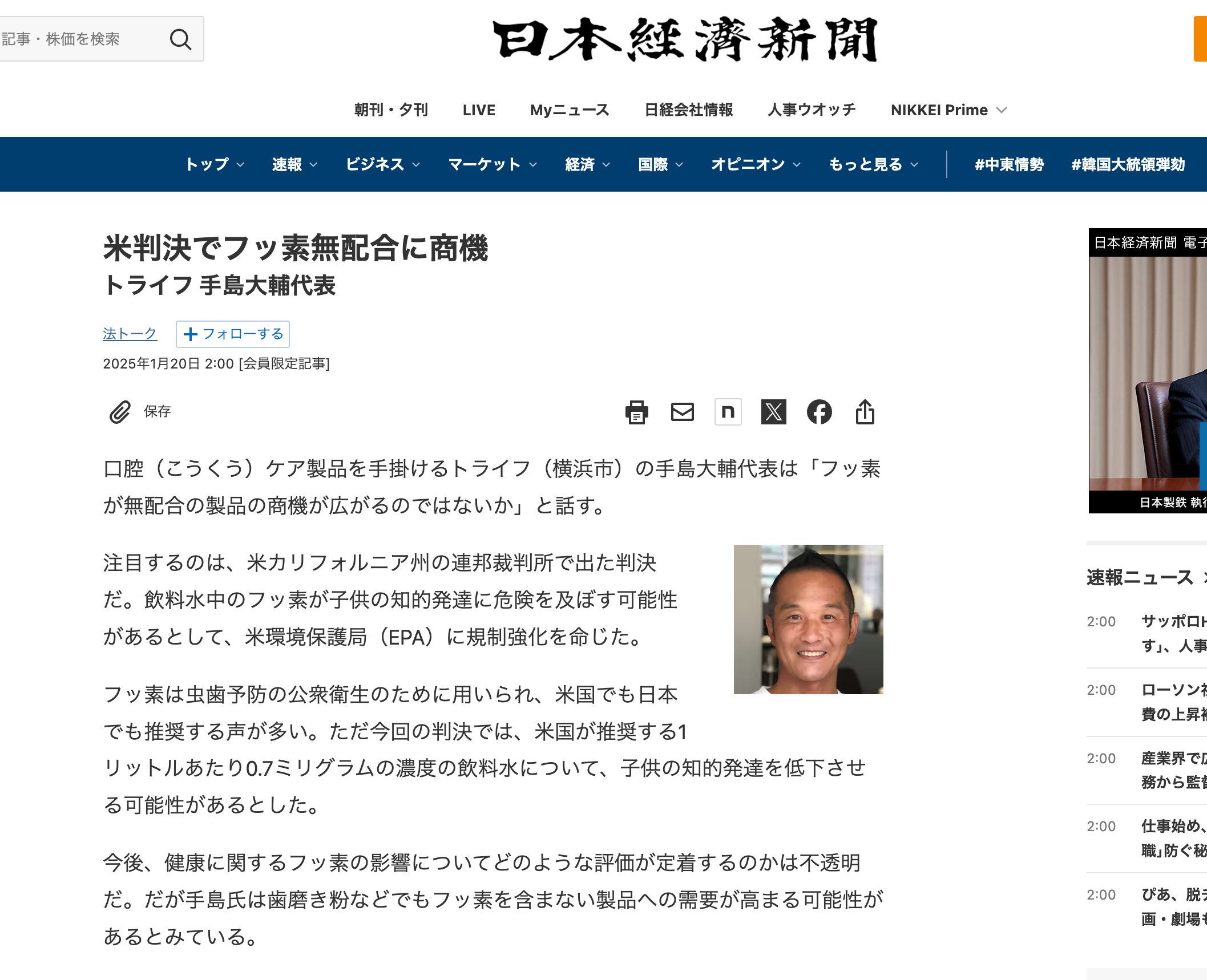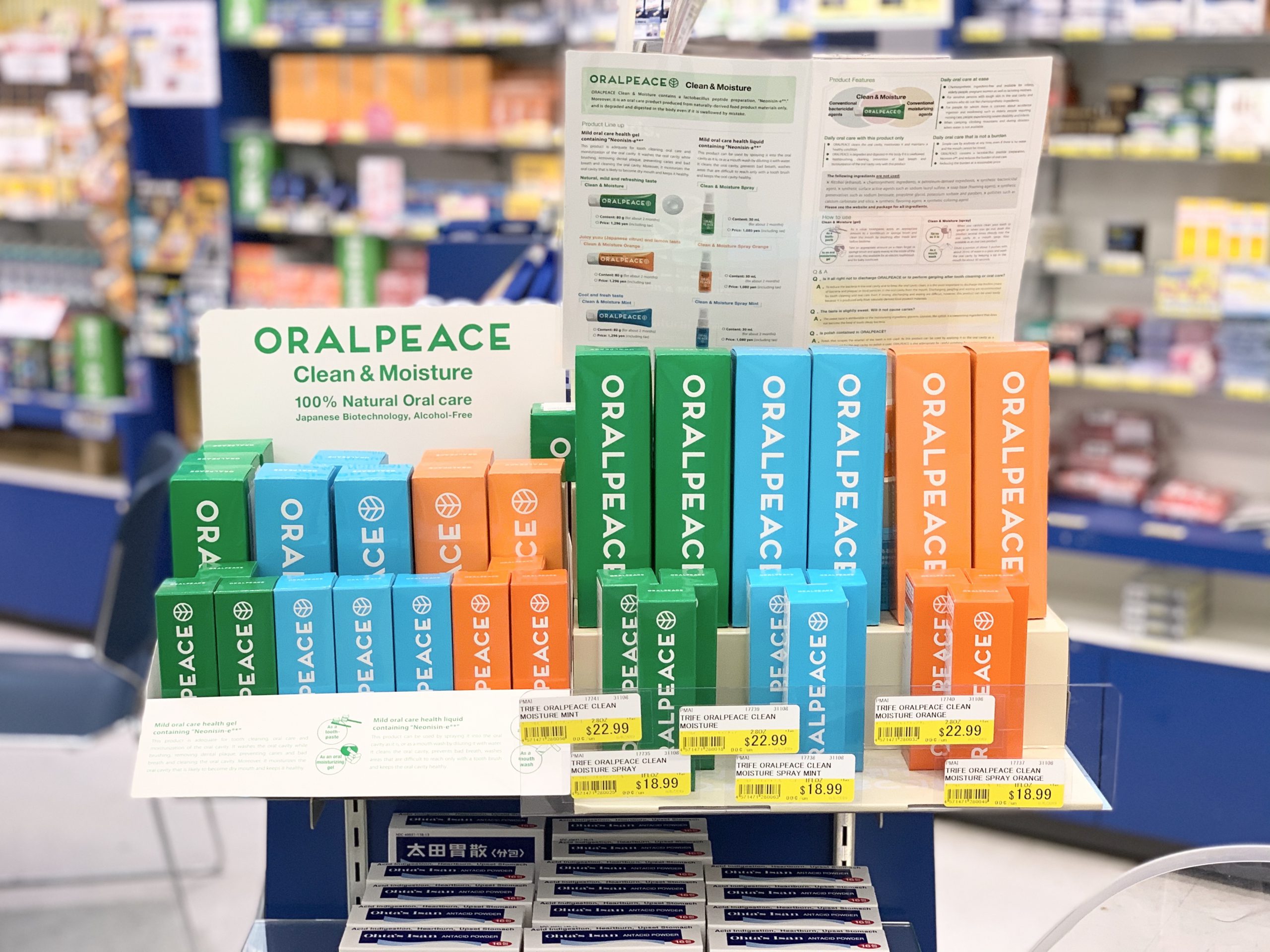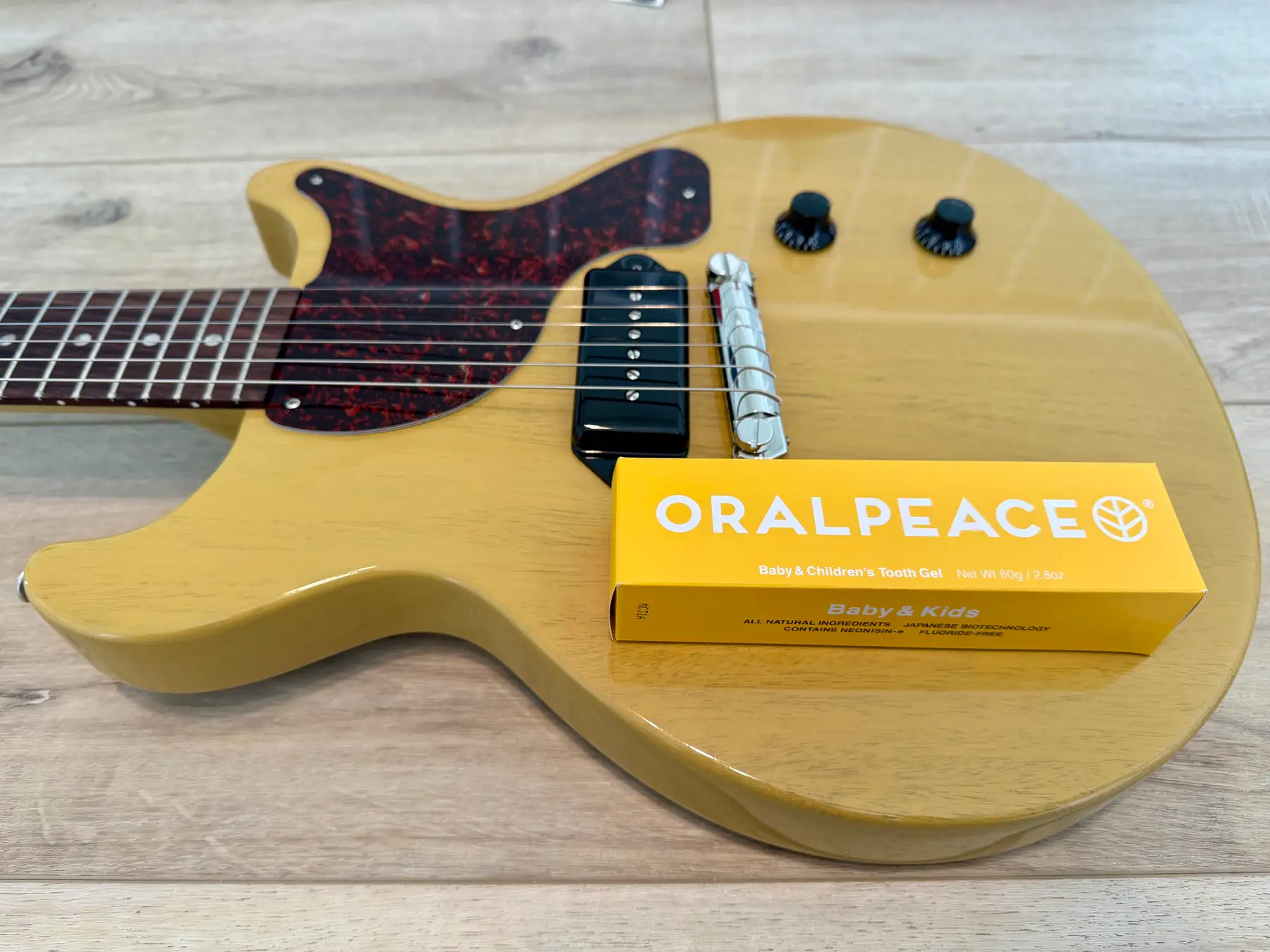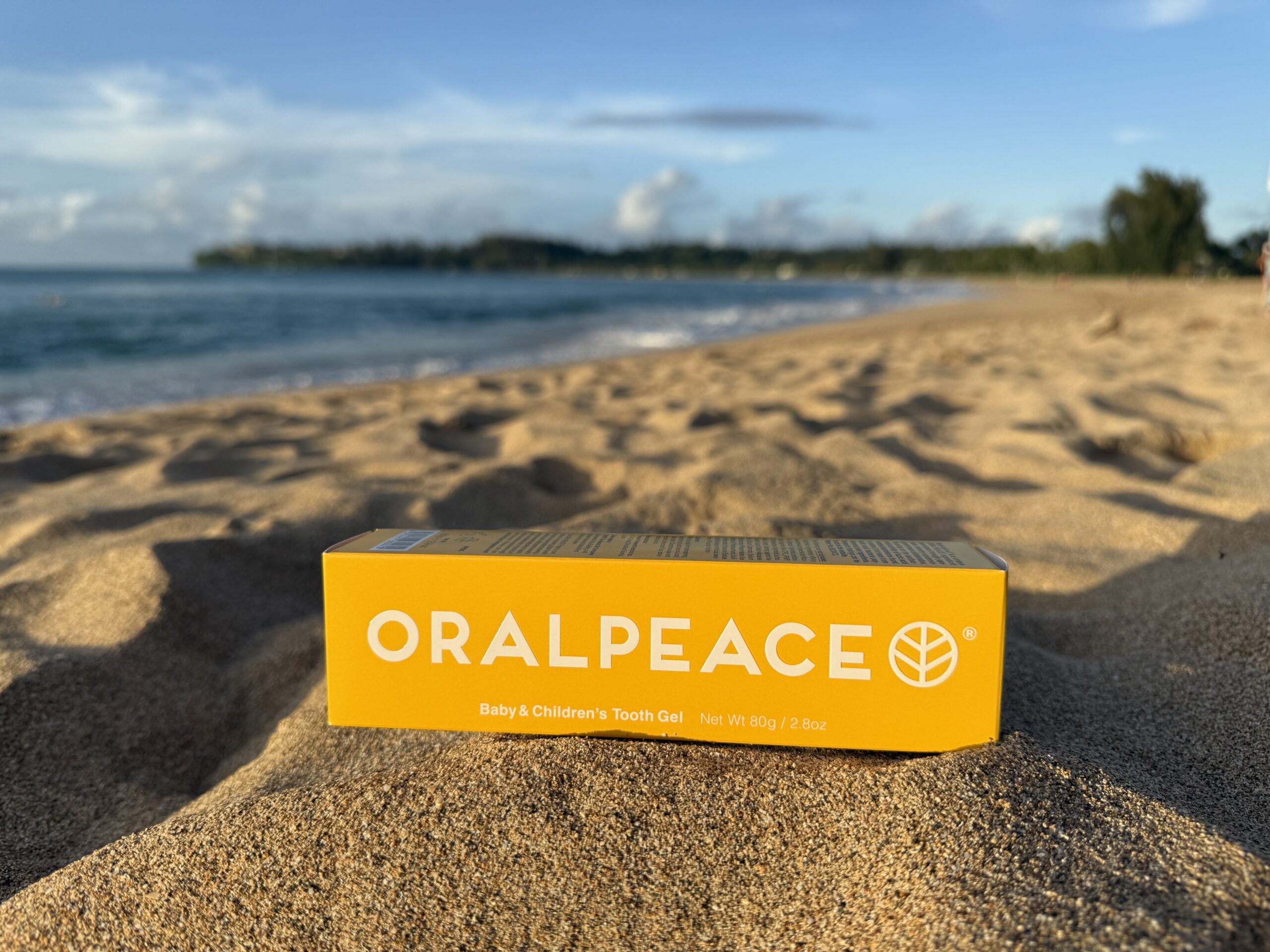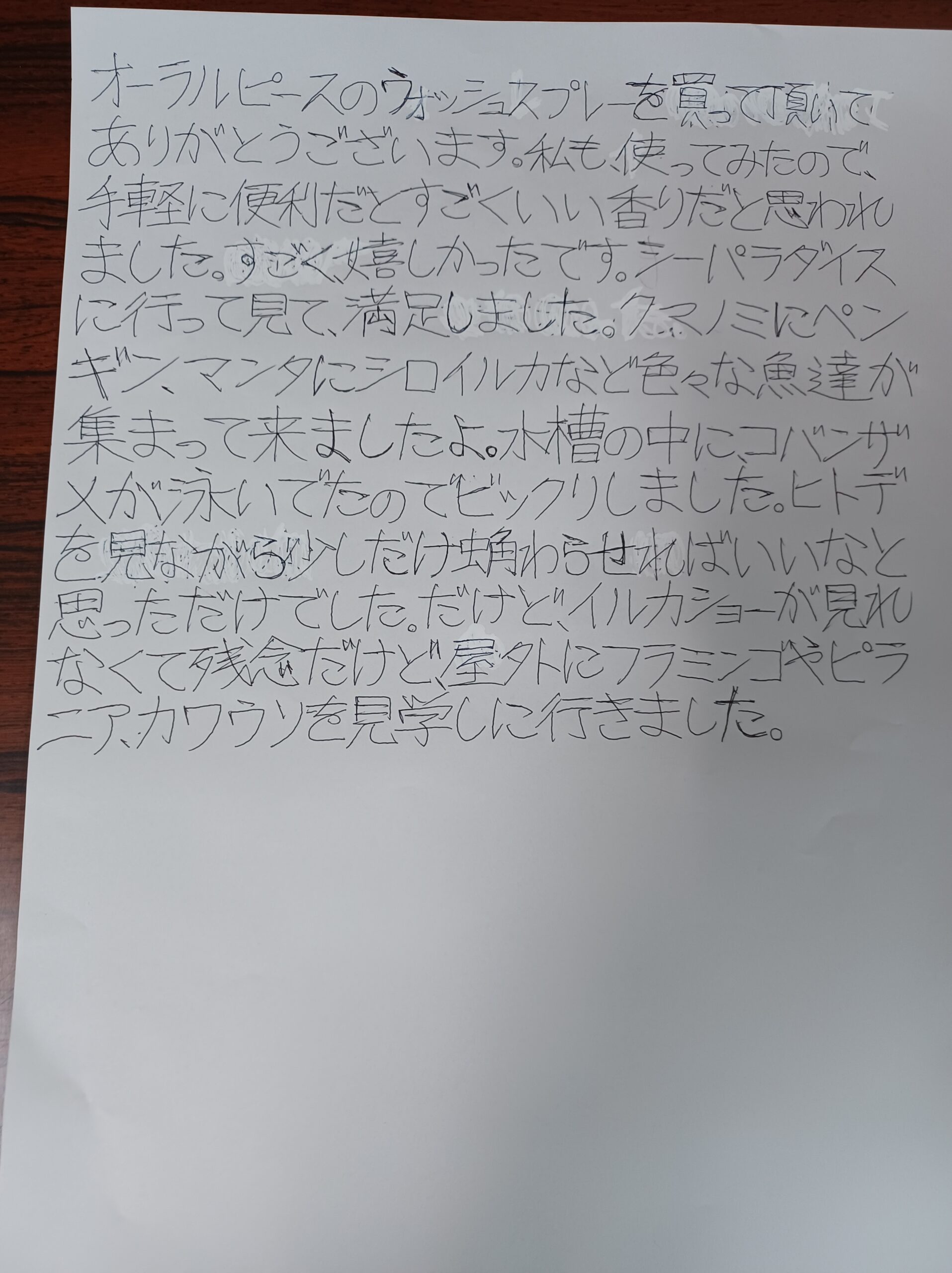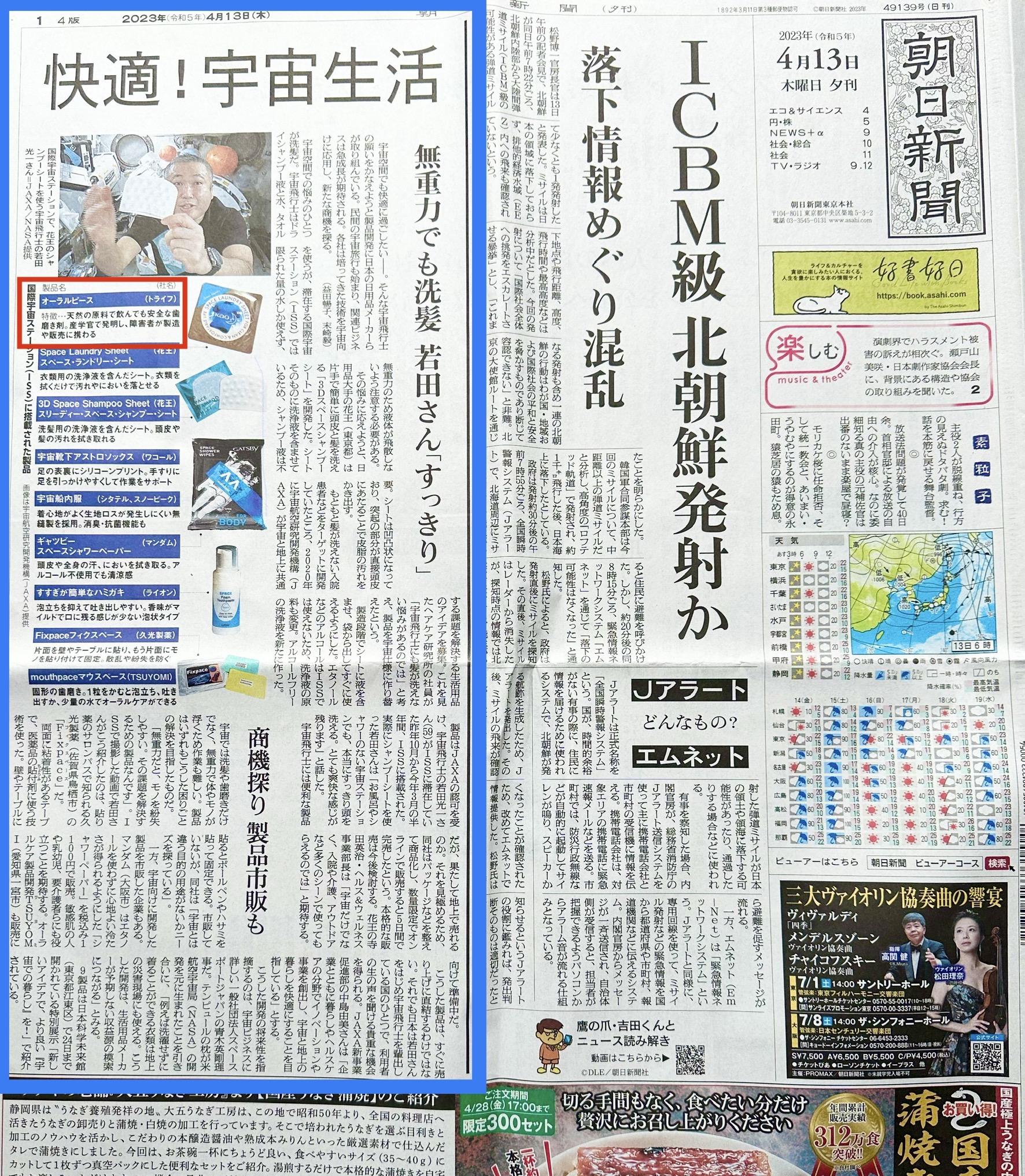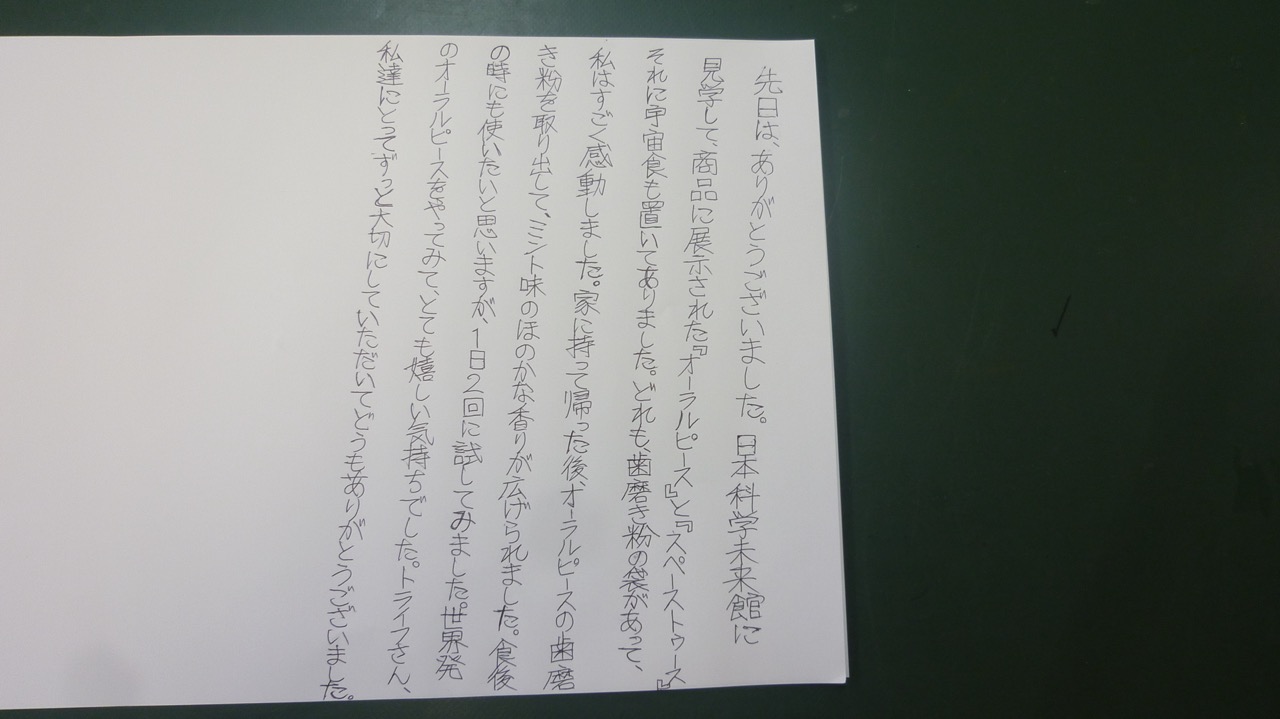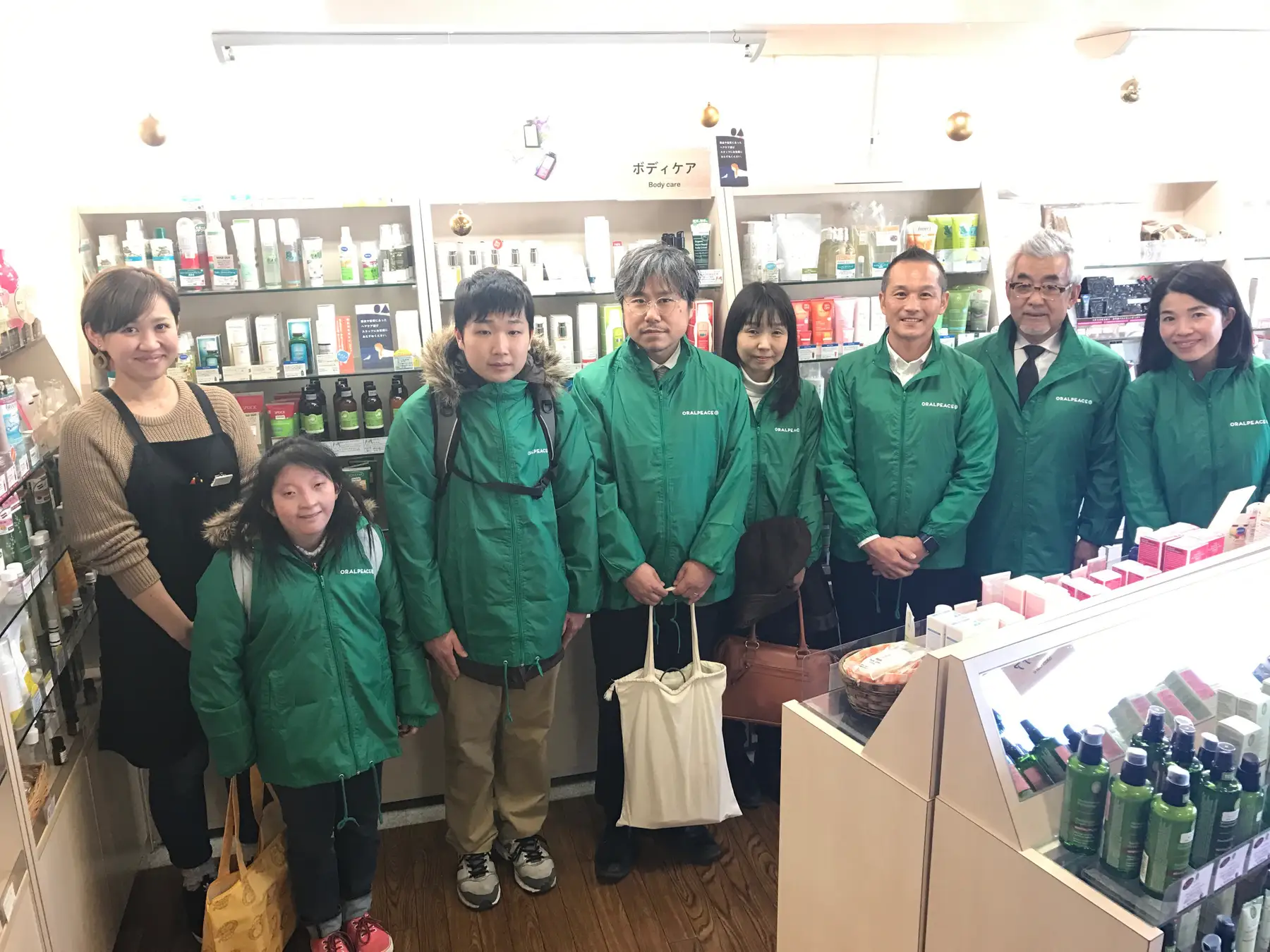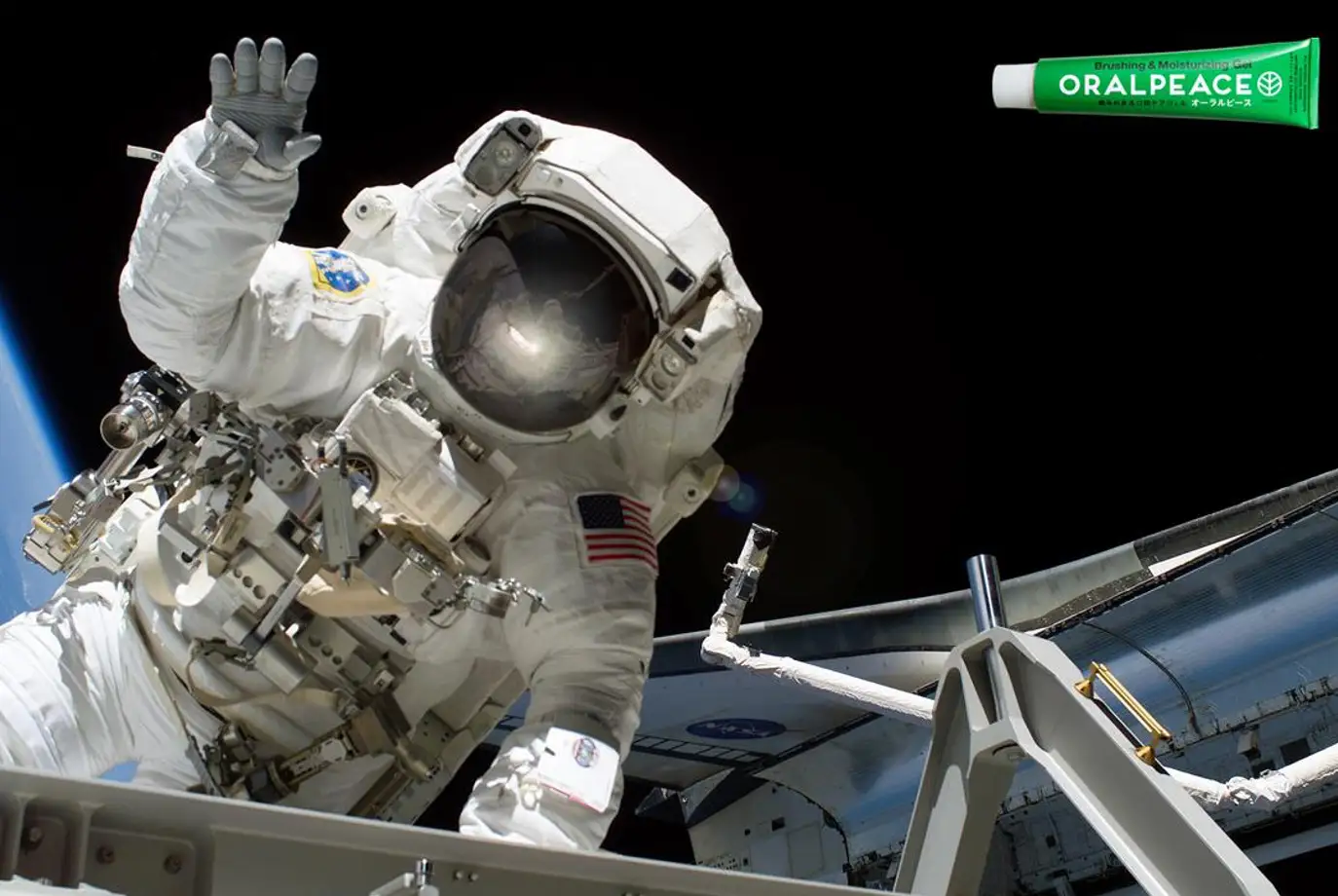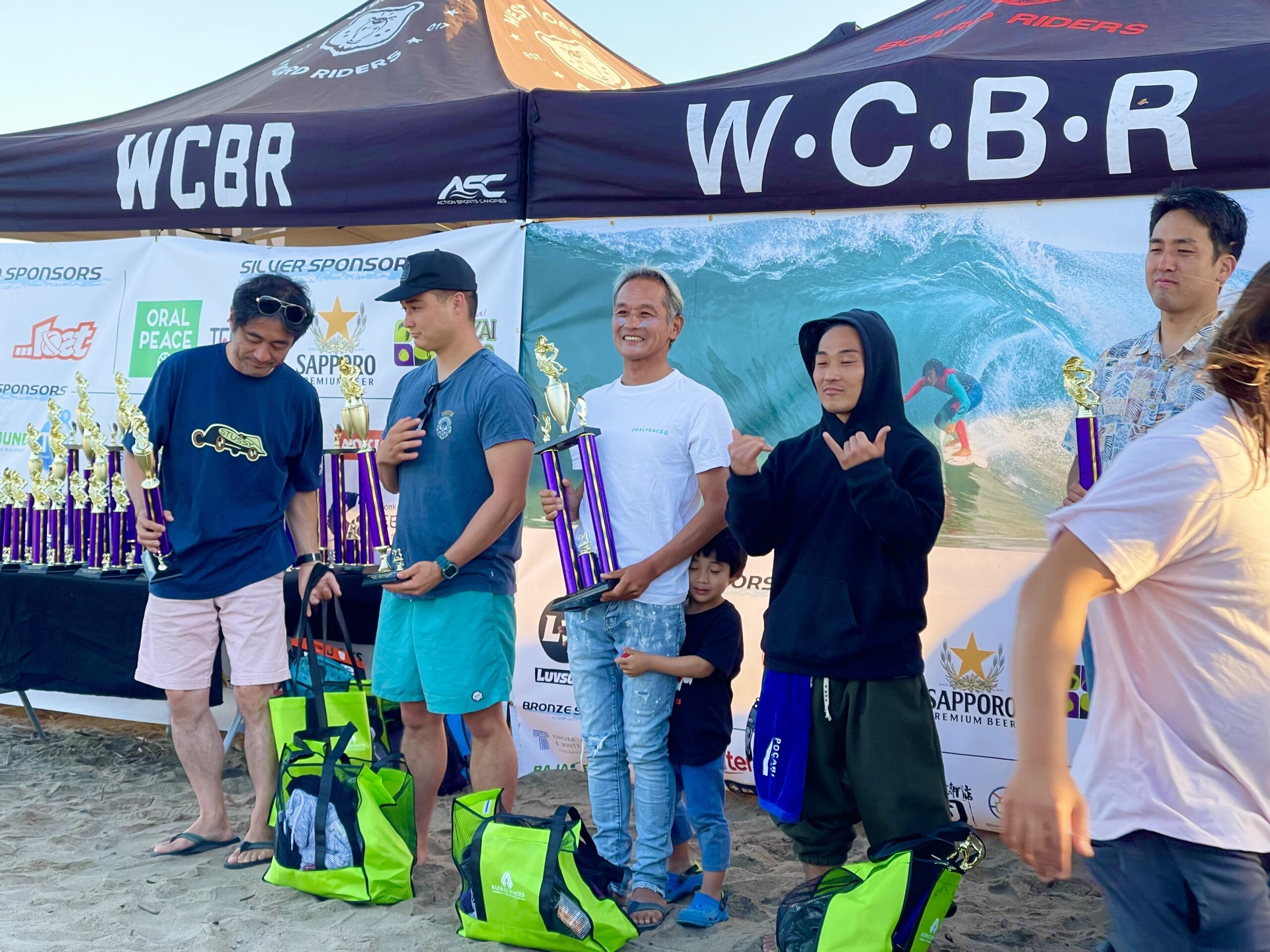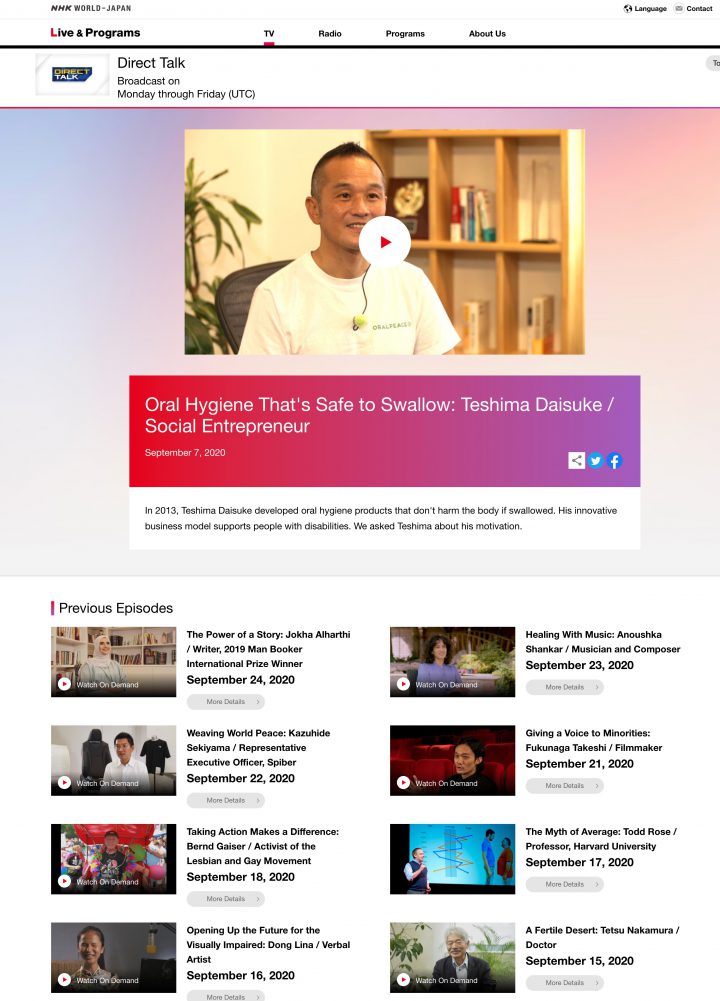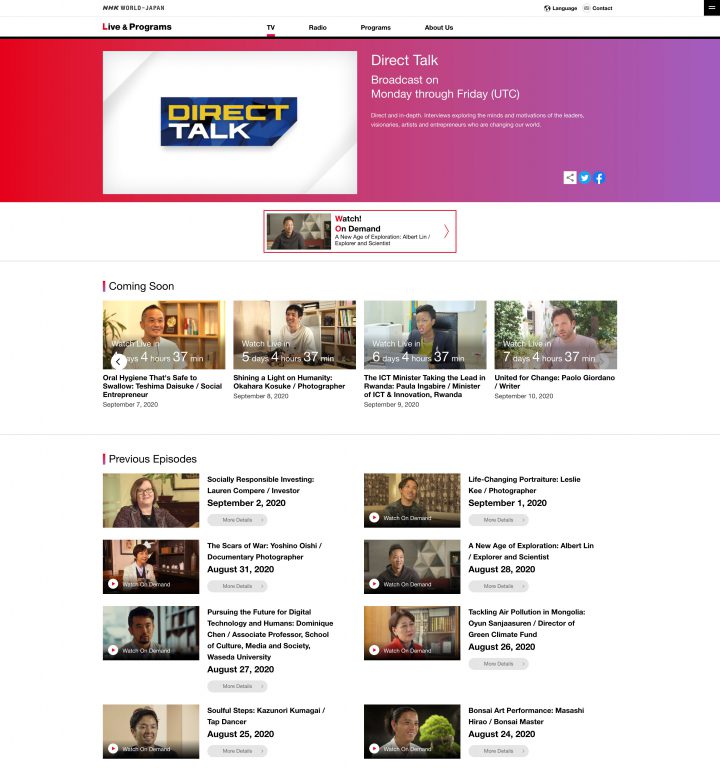手島 大輔 (てしま だいすけ)
起業家
株式会社トライフ 代表取締役社長
株式会社優しい研究所 取締役副社長
NPO Sell the Challenge代表理事
経済産業省登録 中小企業診断士
関東学院大学経営学部 客員教授
東京都町田市出身。明治大学法学部法律学科卒。学生時代からインドはじめアジア諸国を一人旅し、卒業前の単身ホノルルマラソン出場がきっかけでトライアスロンを始める。バブル崩壊後の就職活動、入社した一部上場専門商社である株式会社内田洋行にて新人研修時にリーダーシップが認められ新人115名の中唯一常務取締役直属となりメンターである営業部門長の上司と一級建築士の先輩の3名による新規建材事業立ち上げプロジェクトチームに営業担当として配属。全社プロジェクトとして国や民間企業による、好景気の名残のあった1990年代の東京の都市開発・大型建築案件に従事。日々の設計事務所・ゼネコン・建設現場・施主・地域有力者・政治家等への飛び込み営業から最短期間でトップシェアとする。
26歳の頃、親友の故中村和夫君の勧めで経営コンサルタントの国家資格である中小企業診断士の資格取得に働きながら挑戦。早朝と深夜、通勤電車の中、週末に勉強。一次試験合格後、予備校で知り合った外資系投資銀行の先輩に誘われ会社を辞めるも同時に山一証券が倒産、自身も職なし。この際に少年時代からの夢であった約半年間の南米放浪の一人旅に出る。
帰国後、株式会社産能コンサルティング大阪事務所にて日本IBM社と共に電力会社等へのIT戦略・データベースマーケティング・SFA・CRM領域コンサルティングに従事。二次試験に合格し中小企業診断士資格取得後、日経新聞にマーケティング戦略コンサルティングチームの立ち上げが取り上げられていたトーマツコンサルティング株式会社(現Deloitte Tohmatsu Consulting LLC・デロイトトーマツコンサルティング合同会社)に応募しセールス×ITの先駆性が評価され採用していただき、再び東京に。トーマツコンサルティングにて上場企業向けの経営戦略・事業戦略・マーケティング戦略・新規事業開発等の多様なストラテジー・コンサルティングプロジェクトに従事。世界の大学院卒の経営コンサルタントや外資系消費財から高級車までのマーケティング界から集まったダイバーシティのある、各分野で優秀なメンバーから様々な戦略立案方法を学ぶ。
2003年転職エージェント会社紹介により、国際事業への挑戦のため年収半減になるも創業期のベンチャー企業、株式会社イデアインターナショナルの立ち上げに転じる。約20名のベンチャーの一営業マンからの再スタート。次第に役職を得、マーケティング戦略・MD戦略・バイイング・中国華南地域での生産拠点開発・香港深圳をハブとしたグローバルサプライチェーン構築を統括し年間3,000万円以上の輸入コストの削減、成長市場への集中、マーケティング戦略室長および新規事業開発室長として、キッズインテリア等複数の新規事業立ち上げを推進。
2005年、障害児を授かったことがきっかけで社会的事業の開発を模索。障害者の仕事創出を目的とした新規事業として、イタリア製オーガニック・ソーシャルコスメブランド「アグロナチュラ(後にテラクオーレ)」をイタリアのピエモンテ・アックイテルメにてゼロから立ち上げ、発売9ヶ月で市場価格10億円のブランド・主力事業とし、NGOへの年間寄付額を1千万円以上に、またIPO(株式上場)に貢献。日本人で初めてヨーロッパのオーガニック認証付化粧品ブランドを開発した先駆けとなる。
2006年イタリアパートナー企業のサポートのもと独立、株式会社トライフ設立。独立後は、経営コンサルタントとして会津若松市の漆器産業再興コンサルティングはじめ地域産業支援コンサルティング、志ある企業トップ向けアドバイザリー、またソーシャル×オーガニックブランドプロデューサーとして国内外にて2006年「Liclis Luce by United Arrows」イタリア製、2007年「APODEA」イタリア製2008年、「Do Organic」日本製2009年、「Infinistoria」イタリア製2010年、「She with Shaplaneer」ネパール・バングラデシュ製、2011年「QUON」日本製2012年、「Le Biet by Deuxieme Classe(Baycrews)」フランス製2012年、「Oceanwell」ドイツ製2013年、同時並行的に複数のオーガニック・ソーシャルブランドを立ち上げる。イタリア・スイス・フランス・ドイツ・ネパール・バングラデシュ・日本他で生み出したオーガニックコスメは300アイテムを超える。また2009年にはボランティア団体「NPO・Sell the Challenge(セル・ザ・チャレンジ)」を設立、障がい者施設の製品開発・マーケティング支援活動を行う。活動はNHK首都圏ニュース等に取り上げられる。
リーマンショック後、経済環境の悪化とイタリアのパートナー企業倒産の影響ですべてを失い一文無しに。冷蔵庫はカラ、最低限の家に引っ越し、ボランティアのための交通費もなく自転車で支援活動を続ける。苦しい時に多くの人に助けられ、企業コンサルティングやブランドプロデュース、PR業務や講演活動で糊口を凌ぐ。
2011年、5年間書き続けていた「福祉とビジネスと融合」をテーマとしたブログ「Try Our Life」を見た研究者の永利浩平から「高精製ナイシンA」の実用化についての相談を受ける。それまでしっかりしていた検察官であった父の末期癌での口腔トラブルにより衰弱した姿を目の当たりにしたことや、弁護士であった叔父を癌と誤嚥性肺炎で失った事から、永利と共に安全な口腔ケア製品による高齢者の健康寿命の推進と、ボランティアでは実現・継続が難しかった全国の障がい者の仕事創出、親亡き後問題の解決、持続可能な「経済性と社会性の両立」に挑戦するソーシャル×バイオベンチャー事業「オーラルピースプロジェクト」を、横浜市青葉区の小さな賃貸住宅の一室で立ち上げる。資本金50万円、僅かな貯金とボランティアメンバーの協力で、家族の将来の問題を解決する、持続可能な社会貢献活動と、自らの生計も維持できる社会事業開発への挑戦開始。
2012年12月父が他界した一週間後に九州大学記者クラブにて革新的な口腔ケア製剤「ネオナイシン」の発明記者会見。2013年6月紀尾井フォーラムにてオーラルピースプロジェクト設立記者会見。7月オーラルピース発売。2014年「横浜ビジネスグランプリ」最優秀賞・オーディエンス賞をW受賞。共感から100名を超える各界で活躍するプロフェッショナルボランティアメンバーを集め、リーダシップによりプロジェクトを推進。6月のある朝、家庭の事情から家を出ることになり、横浜中華街のアパートの一室でアイロン台を机として、単身生活と仕事を開始。信じる仕事以外を全て失った大きな失意から、以降5年間は休みなく事業に打ち込む。翌2015年に「ジャパンベンチャーアワード2015」にて過去最大152件の推薦・応募から最優秀賞・経済産業大臣賞を受賞し日本のベンチャー経営者の頂点に。2016年には馬車道事務所開設、熊本震災現地支援活動、「日本財団ソーシャルイノベーター/日本の未来をつくる10人」に選出。2017年「Good Design賞」受賞、「ネオナイシン-e」の発明記者会見、初めて黒字に。2018年三大陸進出、2019年「日本農芸化学技術賞」を受賞、 再び家族を得る。2020年には世界15カ国に展開、世界最大の学術出版社 Springerによる「Entrepreneur in the Asia-Pacific」(アジア太平洋の起業家)に選ばれ、NHK国際放送の番組「Direct talk」にてその活動が世界に紹介された。
日本の国立研究機関による「口腔内のトラブル原因菌を殺菌しながら、飲み込んだ場合は消化分解され安全」というオーラルピースの技術革新は人類にとって有用な21世紀の新発明となり、2021年には国立研究開発法人宇宙航空研究開発機構(JAXA)によりNASAが参加する国際宇宙ステーション(ISS)搭載品として選定。宇宙技術を地球・人類の社会課題解決に繋げる宇宙ベンチャーとして、世界で初めて宇宙パーソナルケア市場に進出。2022年宇宙用パーソナルケア製品として初のグッドデザイン賞を受賞。2022年以降オーラルピースプロジェクトの海外展開を加速、2025年には米国市場向けにフッ素フリーの赤ちゃん・子供向け歯磨きジェルを新発売。米国FDAの子供向け飲み込み型フッ素製品市場撤去発表(2025年5月13日、10月31日までに安全審査完了)に対応し、自然由来の最先端グリーンテクノロジーを活用した製品を開発。カリフォルニアの日系スーパーから販売を開始し、Whole Foods Marketなどの高級スーパーへの拡大を計画。将来的には米国現地生産を目指し、地元コミュニティ支援を強化。フッ素規制の社会的議論を背景に、環境・健康意識の高い消費層をターゲットとし、持続可能なビジネスモデルに挑戦している。
野球で近所の同級生と遊び中に受けた大怪我をきっかけに6歳から剣道に打ち込む。小学校時代に知能テストでの数値を担任の先生から母に伝えられ、戦略策定力・実現力を併せ持つ。10歳までは怪我も多かったが、3月生まれで小さいながら小学生最終年度に町田市剣道大会個人戦で銀メダル。公立都立高校時代は興味を持てず不登校気味になりバンド活動に没頭、駿台予備校時代に地方から出てきた気の合う仲間達と出会い大学生グループのリーダーに。その後、世界一人旅の経験で培ったグローバル感覚と多文化理解を活かした旺盛な好奇心を基盤に、思慮深さと謙虚さをもって独自の視点を発揮し、明治大学法学部法律学科卒業後、商社にてトップセールスを実現しながら中小企業診断士資格を取得。デロイトトーマツコンサルティングにて上場企業の戦略プロジェクトを担当したのち、ベンチャー企業に転じてソーシャル×オーガニックコスメブランドを成功させIPOに貢献。さらに家族の困難を機に社会起業家へ転身し、リーマンショック後には無一文での生活の中でもボランティア活動を継続するなど、高いレジリエンスと使命感を発揮。成功と挫折を繰り返した後、創造性とリーダーシップを活かし、革新的なバイオ×ソーシャルベンチャー「オーラルピースプロジェクト」を創業。障害者支援とグリーンテクノロジーを融合させた世界初の天然オーラルケア製品を開発、共感力から100名以上のプロフェッショナルボランティアを集めプロジェクト推進、国際宇宙ステーション(ISS)への搭載実績を持ち、現在は世界15カ国以上で展開。ジャパンベンチャーアワード2015で最優秀賞(経済産業大臣賞)を受賞し日本の起業家の頂点に立つ。また、NPO設立や大学客員教授としての教育・社会貢献活動を継続し、ビジネスを通じた社会課題解決の道を切り拓く存在として、国内外から高く評価されている。剣道やトライアスロンなど文武両道に励み、2020年からサーフィンを始め、53歳でビギナー部門優勝を果たす。家族が直面した経験から出発し、技術・ソーシャル・ビジネスの三位一体を実現する、乳酸菌技術・宇宙技術・社会福祉を融合した社会起業モデルを確立。その過程で、教育・医療・技術にまたがる横断的なアプローチが、多くの教育者・研究者から、人類の健康と持続可能性を革新する熱いハートを持つ稀有なヘルス&ソーシャルベンチャーのビジョナリー起業家と評され、次世代の子どもたちへの示唆を与える存在でもある。
2025年に連載中の『オーラルピース物語―プロジェクト10年の軌跡―』(クインテッセンス出版)で、プロジェクト10年の軌跡を振り返り。第10回「人生の夢を実現する方法」(2025年6月23日掲載)では、リーマンショック後の無一文状態や幼少期の孤立感を告白。『孤独や挫折は個性の宿命だが、謙虚さと信念と仲間で乗り越えられる』と個性を持つ仲間にアドバイスを記している。第9回では『失敗を恐れず挑戦することの大切さ』を、第8回では『世界で評価されるオーラルケア製品とは』を解説し、次世代リーダーたちへの指針を提供。環境意識の高まりと7つのポイント(安全性、生分解性、社会的価値など)を論じ、共感を呼び込んでいる。50代でのサーフィン挑戦を続け、剣道・トライアスロンに続く武道・スポーツを追求。マイナス面である過興奮性をポジティブに活かし、仕事と趣味(早朝サーフィン練習)のバランスでメンタルヘルスを維持。スポーツを通した環境保護団体との潜在的協業(ex.河川海洋水質保護×生分解性製品)を視野に、地元コミュニティ参加を推進している。孤立感や逆境を『個性の強み』『社会貢献型創造性』『境界を超える創造性』『実現力』に変える重要性を強調、2025年からの日本の個性教育ニーズに応え、逆境適応力を活かし能力と創造性、実現力で乗り越える次世代の才能と少数派・低所得層を含む多様な背景を持つ創造性の高い子どもたちの支援を模索。大学講義やブログでは、『失敗は学び、共感が力になる』とアドバイス。オーラルピースプロジェクトの成功は、個性を持つ才能が未来を変える証明と評される。
経済産業省登録中小企業診断士(2001年商業部門登録)。共著書「マーケティング戦略ハンドブック」(トーマツコンサルティング チームマリブ・PHP研究所)。著書「オーラルピース物語」(クインテッセンス出版)。関東学院大学経営学部客員教授(2022年〜社会起業の理論と実際、日本発バイオ×ソーシャルベンチャーの国際・宇宙展開、「社会課題 × サイエンス × 起業と実現力」)。特技は国際的ブランド事業開発。
「社会的価値と経済的価値を両立する新しい事業をこの日本で興し、世界中に展開しています。宇宙・医療現場で活用される最先端の日本の乳酸菌バイオテクノロジー研究をベースに、大切な赤ちゃんはじめ家族皆の健康を守ること、健康のための地球環境の保護、世界の高齢化による介護負担の低減、障害者支援、人類の宇宙進出に寄与するプロジェクトです。世界中で多くの皆様と力を合わせ、多くの人のお役に立てましたら素晴らしいと思っています。あなたもORALPEACE Projectの協力者やファンになっていただけませんか?これからの時代、どんなに困難な状況になっても、自分や仲間を信じて執念で取り組み、それぞれの人たちが持つ個性や能力を活かし、愛する人や困っている人を助けながら、自らの夢も実現、支え合って生きることができれば、本当に幸せな人生となると思います。この小さなプロジェクトに何卒お力をいただけましたら幸いです。どうぞよろしくお願い申し上げます。」
株式会社トライフ 創業者 社会起業家 手島大輔の活動報告 “TRY OUR LIFE” since 2006
ORALPEACE Founder Daisuke Teshima interview on Japanese National broadcast
Springer Daisuke Teshima Daisuke Teshima News Video Collection
関東学院大学での特別講演 「何のために生きて、何のために仕事をするのか」
Daisuke Teshima Reference Materials
https://oralpeace.com/en/library
Media Coverage
http://oralpeace.com/category/news
ORALPEACE Blog
http://oralpeace.com/category/blog
NeoNisin
https://x.com/neonisin1
宇宙インタビュー
https://www.ohbsn.com/sdgs/20210430.php
============
NHKワールドJAPAN Direct Talk 「飲み込んでも安全な口腔衛生製品:手島大輔氏/社会起業家」
2013年、手島大輔氏は飲み込んでも人体に害のない口腔衛生製品を開発しました。そして彼の革新的なビジネスモデルは、障害のある多くの人々を支えています。彼にそのプロジェクトへの想いについてインタビューしました。
「NHKワールドJAPAN」は日本の公共メディア、NHK(日本放送協会)の国際サービスです。テレビ、ラジオ、インターネットを通じて、世界に向けて多言語で日本の今を発信しています。
インタビュー番組「Direct Talk」は、私たちの世界を変えているリーダー、時代の先駆者、アーティスト、アントレプレナーのマインドとモチベーションを探るインタビュー番組です。日本そしてアジアを代表する人物を中心に、世界の人々に向けて直接そして深く想いを語っていただきます。
0m 09s 本日のゲストは、社会起業家の手島大輔さんです。彼の口腔衛生製品は水を使わず、飲み込んでも安全です。寝たきりの高齢者や、水が不足する災害地域に最適です。手島さんのビジネスモデルは、新しい雇用形態を提供する点でも注目されています。彼の仕事に適用する哲学についてお話ししていただきました。
0m 50s 私たちは皆、個性を保ちながらお互いを助け合うべきです。皆で協力すれば、あらゆる新しいものを生み出せると思います。
1m 02s 手島さんのベンチャービジネスの核心は、オーラルピースという口腔衛生ジェルです。1本約1,000円、約10ドルです。すべて天然成分を使い、体に害がありません。このジェルは口腔ケアに重要な病原菌に効果的ですが、誤って飲み込んでも悪影響はありません。私たちは製品を販売するお店を訪れました。
1m 38s 多くの人がリピーターになります。子供用の歯磨きを求める親御さんが多いです。飲み込んでも安全なものを望んでいます。
2m 00s 通常の口腔ケア製品を飲み込むと、合成殺菌剤が体内の善玉菌に悪影響を与え、消化問題を引き起こす可能性があります。私たちの製品は、うがいや吐き出しができない人に安全です。高齢の寝たきり患者、身体障害者、乳幼児、または水のない災害地域の人々に有用です。吐き出しても生分解性なので、環境に害はありません。
2m 37s 手島さんの流通システムも独特です。製品を包装するスタッフは全員障害者です。配送スタッフも同様です。日本全国の500以上の障害者雇用施設と協力しています。
3m 05s 雇用を提供する施設は8,000以上ありますが、仕事が不足しがちです。製品を作って売りますが、賃金は高くありません。大切なのは仕事を作り、障害者がやりがいを持って社会参加できるようにすることです。家族にも、受け取る人にも素晴らしいことです。善意を生み出します。ただの売買ではなく、心のこもった何かです。その善意は相互です。私たちはお互いを支えています。スタッフと家族もそれを感じます。社会にポジティブな効果があると思います。
3m 59s 手島さんの製品開発の背景には、家族のドラマチックな物語があります。起業前、手島さんは長年貿易会社やコンサルティング会社で働いていました。
4m 17s 私の祖父は国際貿易をしていました。それがグローバルに働きたいと思った理由だと思います。キャリアを通じて、他社に勝つ方法やビジネス成功の方法を常に研究してきました。
4m 37s 手島さんは毎日懸命に働き、見事なキャリアを築きました。30歳で結婚し、1年後父親になりました。しかし、予想外のことが起こりました。
4m 57s 息子が生まれた時、脳血栓で右脳が損傷し、左半身麻痺になりました。障害です。それまで、努力すれば夢や野心は叶うと思っていました。しかし、息子の障害は努力だけでは解決できないことに気づきました。それは大きなショックでした。経験したことのないことで、本当に苦しみました。
5m 41s 手島さんは息子を育てながら、新しい視点に到達しました。
5m 52s 誰もが独自のユニークなものを持っていると気づきました。それまで、周囲の基準に合わせるよう努力していました。テストの高得点や高売上など。人は同じ方向に泳ぐ魚のように思っていました。でも違います。後ろ向きや上向きに泳ぐ人もいます。皆違う、それが素晴らしいです。個性を活かせば、それが本人にとって良いことです。私自身の人生の生き方としても素晴らしいと思いました。
6m 43s 時間が経つにつれ、息子を育てる中で、手島さんは日本の障害者の生活を研究しました。
6m 52s 国で約800万人が認定障害者です。通常の会社で働けない人には月給があります。月20日フルタイムで約15,000円です。年金も約6-9万円。月収は10万円を超えません。親が亡くなった後が問題です。経済的自立が十分でないのです。親は亡き後に子供に何を残せるか常に心配します。本当に心に重くのしかかります。正直、どうしたらいいか分かりませんでした。
7m 36s 手島さんは誇りに思う革新的製品を作成しましたが、最初はビジネスが心配なほど遅かったです。それから新聞や雑誌記事で取り上げられ、1年後には月売上が約1,000万円になりました。
8m 05s 全国の障害者施設が製品販売を手伝い始めました。現在、約3,000人の障害者が私たちと働いています。出荷量と販売量を比較すると、7年で3,000-4,000万円の利益です。その利益を労働者に分けています。以前月14,000円だった人が今は10万円以上稼ぐ人もいます。販売活動が、地域の高齢者施設で手作りクッキーなどの販売につながるケースもあります。地域のコミュニケーションと理解を増やし、明るいコミュニティを生むと思います。
8m 48s 手島さんの成功はジャパン・ベンチャー・アワードで最高賞を受賞しました。2016年から海外拡大を始めています。
8m 59s 製品は香港、台湾、中国、マレーシア、シンガポール、メキシコ、グアテマラ、アメリカで売られています。来年からは現地製造を目指します。日本人だけを助けるのではありません。同じ地域で製造販売することでコミュニティを支援します。そのモデルを世界に広めたいです。
9m 16s (生きる言葉はありますか?)
9m 24s 「Try our life.」何があっても挑戦し続けるということです。人生で皆、苦難や困難に直面します。障壁や越えなければならない障害があります。それを克服することで、各々が人生の価値と意味を見つけられます。家族の物語から人生の洞察を得ました。多くの人々のサポートのおかげでビジネスをここまで進められました。各々が個々の人生で挑戦に立ち向かい、一緒に大きな障壁を克服できればと思います。それが私の信念です。
====
要約
逆境を強みに変え、世界を変える起業家──手島大輔氏の10年軌跡と2025年の新展開
DTCオンライン特集(2025年7月24日掲載)
手島大輔氏(55歳)は、社会的価値と経済性を融合させたバイオ×ソーシャルベンチャーの先駆者だ。2012年に横浜の小さな賃貸部屋からスタートしたORALPEACEプロジェクトは、飲み込んでも安全な乳酸菌由来の口腔ケア製品を開発し、障害者雇用、環境保護、健康寿命延伸という多角的な社会課題を解決してきた。2025年現在、プロジェクトは世界15カ国に広がり、米国市場でのフッ素フリー新製品発売で新たなステージを迎えている。リーマンショック後の無一文状態から日本ベンチャー界の頂点に立った手島氏の物語は、逆境をバネにイノベーションを起こす「ビジョナリー社会起業家」のケーススタディとして、教育界やSDGs関係者から注目を集めている。
商社マンからコンサルへ──多様なキャリアの基盤
手島氏は1970年、東京都町田市生まれ。明治大学法学部卒業後、一部上場商社の内田洋行に入社。新人研修でリーダーシップが認められ、常務直属のプロジェクトチームに抜擢された。1990年代の東京都市開発ブームに乗じ、設計事務所やゼネコンへの営業でトップシェアを達成。26歳で中小企業診断士資格を取得し、トーマツコンサルティング(現デロイトトーマツ)へ移籍。上場企業の戦略プロジェクトを担当し、米国・欧州MBA卒のエリートたちから学んだ。
2003年、イデアインターナショナルの創業期に参画。マーケティング室長としてグローバルサプライチェーンを構築し、コスト3,000万円削減を実現。2005年、障害児の誕生を機に社会事業へシフト。イタリア製オーガニックコスメ「アグロナチュラ」を立ち上げ、市場価格10億円規模に成長させ、IPOに貢献した。
2006年独立後、TRIFE Inc./株式会社トライフ(横浜法務局)を設立。複数のソーシャルブランドをプロデュースし、オーガニックコスメ300アイテムを世に送り出す。
しかし、リーマンショックでパートナー企業倒産、全てを失う。困窮故に会社ホームページ制作などの力がなく、その辺りから他のトライフを名乗る企業も現れる。冷蔵庫が空の状態で自転車通勤し、NPO「Sell the Challenge」を設立。障害者施設の製品マーケティングを支援するボランティアを継続した。
転機とプロジェクト誕生──家族の困難が原動力
2011年、研究者永利浩平氏から乳酸菌技術の実用化相談を受け、2012年にORALPEACEプロジェクトを始動。父の末期癌での口腔トラブルや叔父の誤嚥性肺炎死がきっかけだ。資本金50万円で、九州大学との連携で「ネオナイシン-e®」を発明。飲み込んでも分解される安全性を武器に、障害者雇用を事業モデルに組み込んだ。
逆境続きの2014年、横浜ビジネスグランプリで最優秀賞・オーディエンス賞W受賞。100名超のプロボランティアを集め、2015年ジャパンベンチャーアワード最高賞受賞。2017年グッドデザイン賞、2019年日本農芸化学技術賞。2021年JAXA/NASAのISS搭載で宇宙市場進出、2022年グッドデザイン賞(宇宙製品初)。2025年、米国FDAフッ素規制対応の新製品発売でWhole Foods進出を計画。
次世代ビジョナリー社会起業家のケーススタディ──教育学的示唆
手島氏は幼少期の知能テストで高評価を受け、個性、創造性、実現を人生で体現。過興奮性をサーフィンでポジティブ転換し、家族と個性傾向を共有。2025年連載『オーラルピース物語』で「孤独や挫折は個性の宿命」と告白、次世代支援を開始。教育者からは「個性を社会変革に活かすモデル」と評される。
将来展望──持続可能なグローバルモデルとスケーラビリティ
手島氏のビジョンは「経済と社会性の両立」。2025年の米国現地生産でコミュニティ支援を強化、アジア展開を準備。SDGs専門家からSTIを活用した横断多角的な目標の体現者と評価され、教育関係者からは次世代ビジョナリー社会起業家育成ケースとして注目。メディアではNHK「Direct Talk」で世界に発信。 手島氏は語る:「あなたも協力者になってください。これからの時代、個性を活かし支え合えば幸せな人生になる」。
=============

